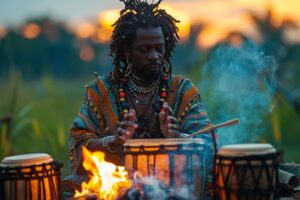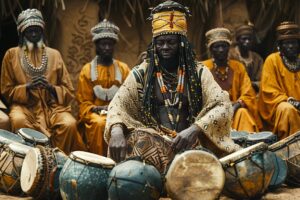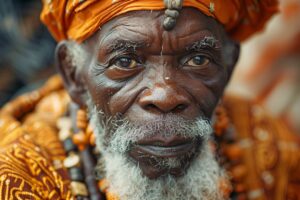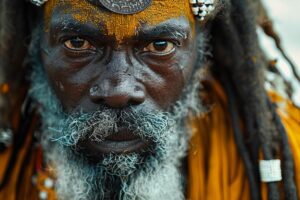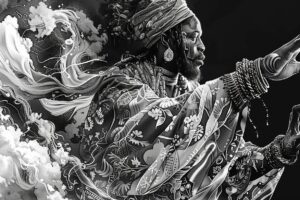Gu African God Of Blacksmithing: African Mythology’s Blacksmith Deity
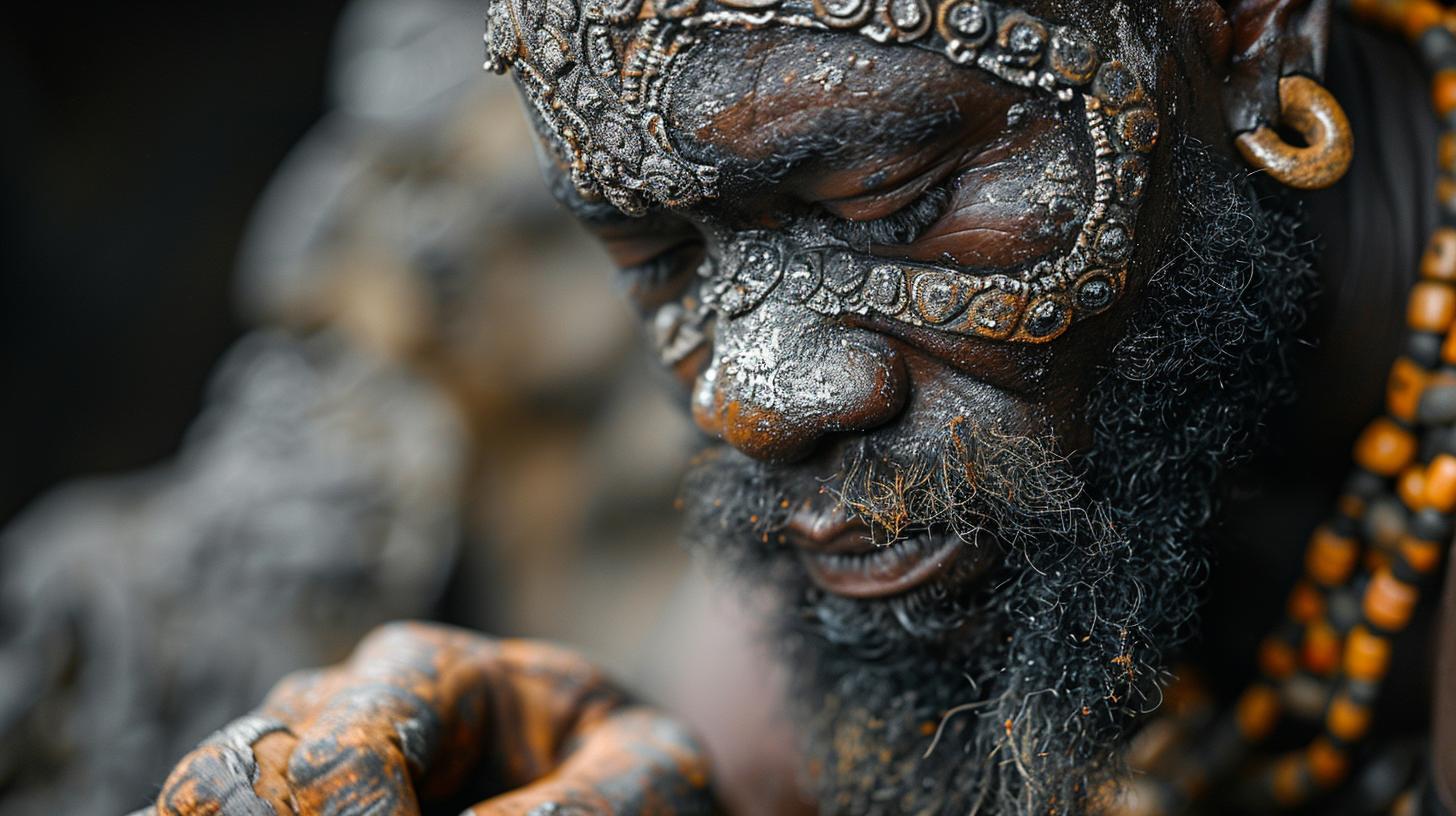
Gu, the African god of blacksmithing, holds significant importance in African mythology. Legend has it that Gu emerged on Earth as a humble paletón and later rose to become the deity of blacksmiths and warfare.
He is revered for his benevolence and his role in aiding humanity. Gu is closely associated with the sun and is depicted in various forms of art throughout African cultures. This deity’s legacy continues to be revered in modern African society.
Origin and Mythology of Gu
Gu, the African god of blacksmithing, has a rich history and mythology that spans various African cultures. His emergence on Earth, role as the god of blacksmithing, and presence in different African societies highlight his significance in African mythology.
Gu’s Emergence on Earth
According to African mythology, Gu began as a humble laborer on Earth, tasked with fulfilling various duties such as filling craters and repairing oceans. Over time, Gu rose to prominence and became revered as the god of blacksmithing and war.
Gu’s Role as the God of Blacksmithing
Gu’s association with blacksmithing is central to his mythology. He is credited with the invention of all crafts and is closely linked to the element of iron. In African cultures, Gu is depicted as a powerful deity who embodies the essence of craftsmanship and skill with metals.
Gu in Different African Cultures
Gu’s presence is felt in various African cultures, from the Fon to the Yoruba and Ewe. Known by different names such as Ogún in Yoruba religion, Gu is a figure of reverence and respect, embodying the values of creativity, craftsmanship, and protection.
His legacy endures in the diverse traditions and beliefs of African societies.
Attributes and Symbolism of Gu
Gu, the African god of blacksmithing, embodies a diverse array of attributes and symbolism that reflect his multifaceted nature.
Gu as the God of War and Metal
Gu is revered as the god of war and metal, symbolizing strength, power, and craftsmanship. His association with war signifies his role as a protector and warrior deity.
The Sun and Iron: Gu’s Associations
Gu’s connection to the sun represents his role as a vigilant guardian and illuminator of the universe.
This association highlights his divine presence and authority over the realms of existence.
Representations of Gu in Art
Artistic depictions of Gu in African sculpture often showcase him wielding symbols of his power, such as swords and chains made of iron. These representations serve as visual tributes to his importance in society.
Significance of Gu in African Society
The importance of Gu in African society is profound, shaping the cultural and spiritual landscape in various ways.
Gu’s Connection to Humanity
Gu’s connection to humanity is represented in his benevolent nature and his role as a protector and provider. He is believed to intervene on behalf of humans in times of need, offering guidance and support.
Gu’s Contributions to Human Development
Gu’s influence extends beyond the spiritual realm to practical matters of human development. Through his teachings and guidance, he has inspired advancements in metallurgy, craftsmanship, and warfare, contributing to the progress of African societies.
Gu’s Legacy in Modern African Culture
In modern African culture, Gu’s legacy endures as a symbol of resilience, creativity, and strength. His presence is felt in artistic expressions, traditional rituals, and ceremonial practices, serving as a reminder of the rich heritage and traditions that continue to thrive in African communities.
.

